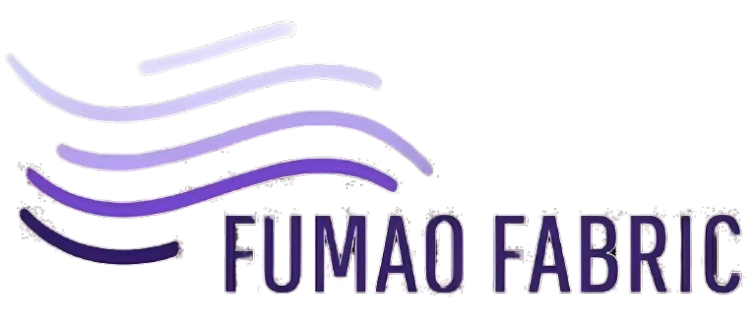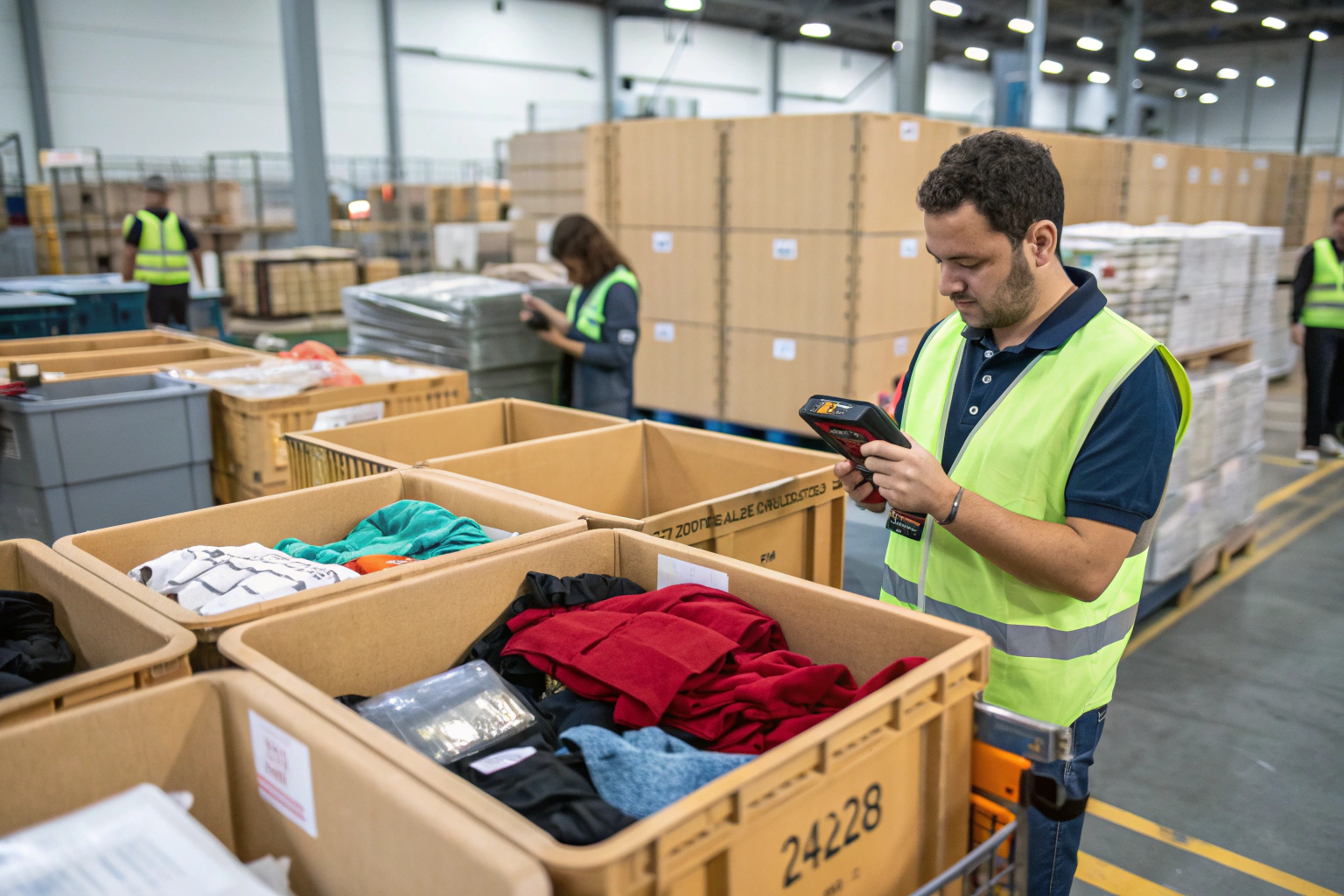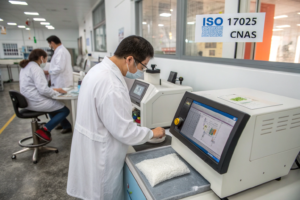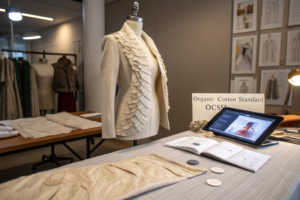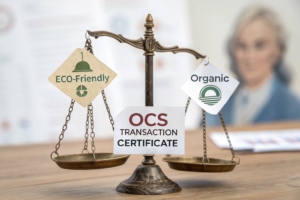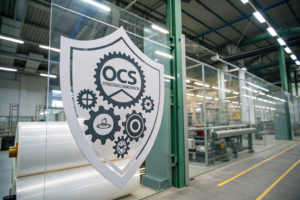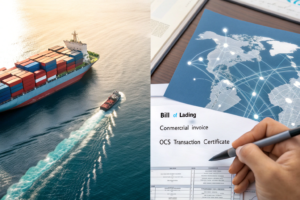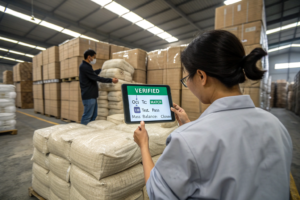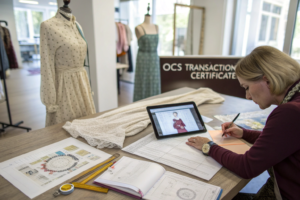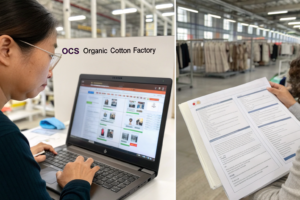Anti-counterfeit UV-reactive security threads provide a powerful solution. These threads glow under ultraviolet light, making it easy to authenticate genuine products at every stage of distribution. The challenge is finding the right supplier that offers reliability, consistent quality, and global logistics support.
At Fumao Fabric, we have seen how sourcing decisions impact both security and efficiency. By using our experience in textile production and international supply chain management, I will share what buyers like Ron in the U.S. should know before sourcing UV-reactive threads from China or other Asian markets.
What Are UV-Reactive Security Threads?
They combine textile engineering with chemical security. UV-reactive agents are integrated into the yarn during production, so the colorfastness and glowing effect remain even after washing or exposure to sunlight. For industries where authenticity matters, they provide an efficient, low-cost, and highly reliable solution.
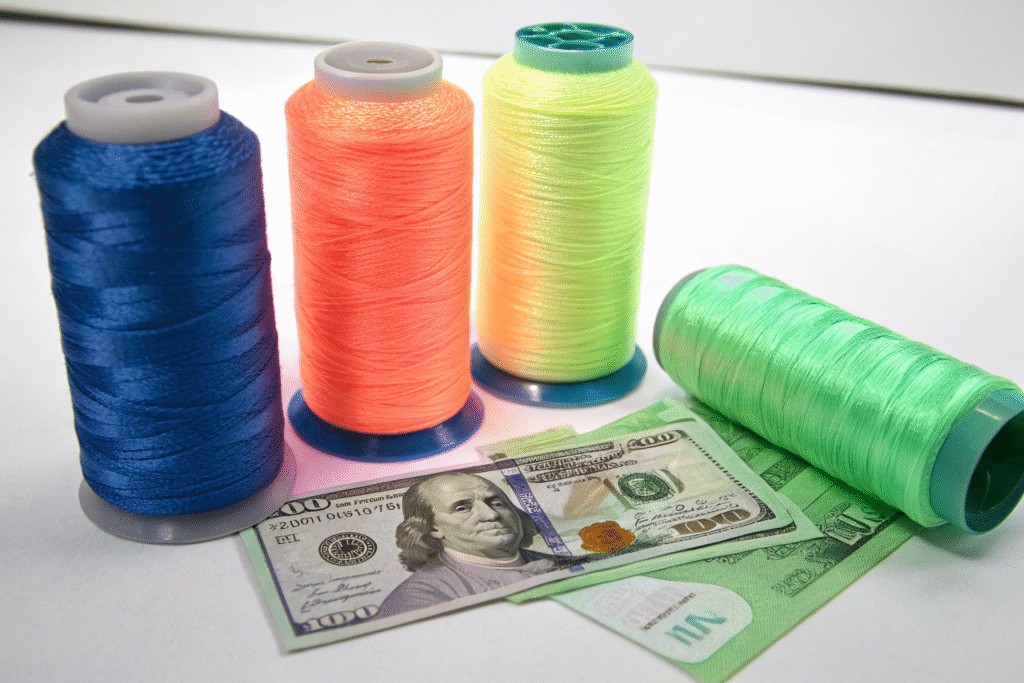
Why are they used in fabrics and packaging?
When brands want to protect their clothing labels, hang tags, or woven packaging tapes, UV-reactive threads become a hidden but verifiable marker. For example, luxury labels like OEKO-TEX certified fabrics often integrate security elements to ensure no substitution occurs in supply chains. Similarly, customs and logistics officers can use UV light scanners to verify authenticity instantly.
How do they compare with holograms or QR codes?
Unlike hologram stickers or QR codes, UV-reactive threads cannot be easily peeled off or replicated. They are woven directly into the fabric or tag, making counterfeiting more difficult. According to Textile World, woven-in security technologies are now the fastest-growing segment in textile-based anti-counterfeit solutions.
How to Verify Quality When Sourcing?
The best way to verify quality is through lab testing. At Fumao Fabric, we use a CNAS-accredited lab to test UV-reactive yarns under multiple washing, abrasion, and exposure conditions to ensure they meet SGS/ITS benchmarks.
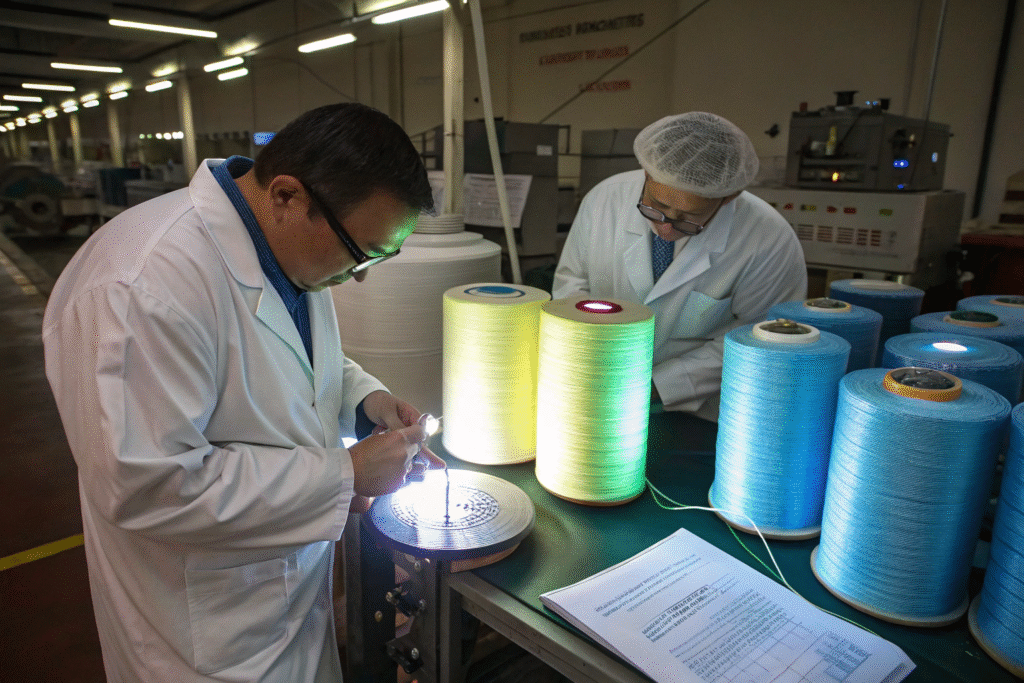
What certifications should buyers check?
Buyers should request certifications like SGS test reports, REACH compliance, and eco-labels if exporting to Europe. These documents prove that the threads are safe, environmentally compliant, and suitable for export without customs issues.
Can small-batch buyers still request testing?
Yes, even small apparel startups or online retailers should ask for sample testing. We provide 48-hour sample development so buyers can see the UV effect before committing to bulk orders. As one American buyer once told me, “Testing samples saved us from investing in a supplier who failed to meet standards.”
Where to Find Reliable Suppliers?
The most reliable sources are integrated textile manufacturers with in-house or partnered dyeing and finishing facilities. These suppliers can guarantee both quality and confidentiality.
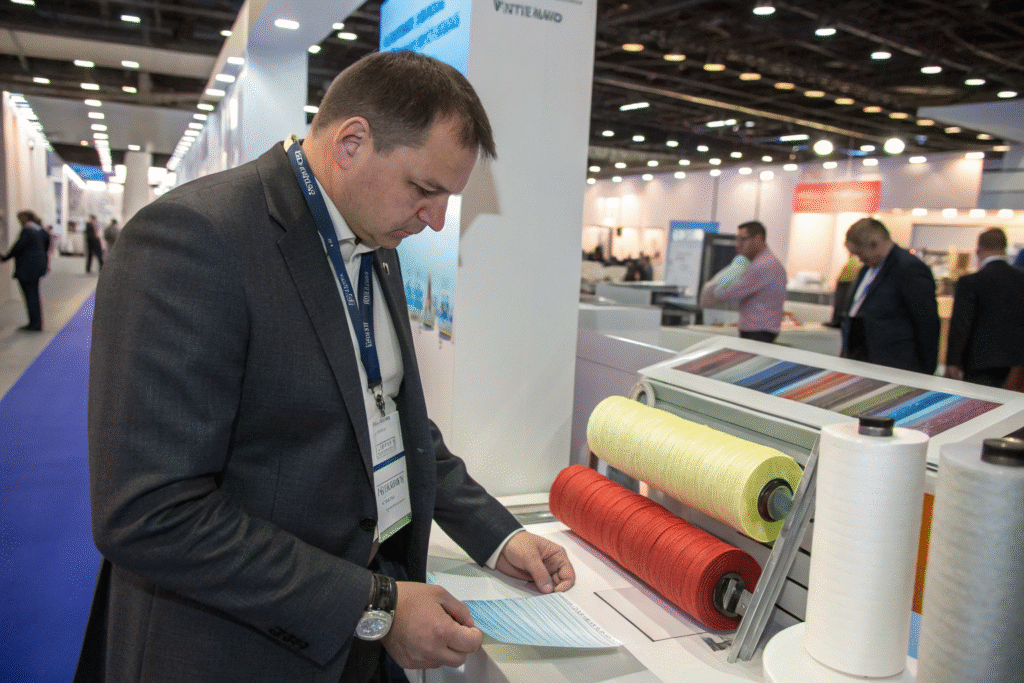
Should buyers look in China or Southeast Asia?
China’s Keqiao market remains the world’s largest textile hub, with direct access to UV-reactive yarn factories and advanced dyeing houses. While Southeast Asia offers competitive prices, many factories there still import specialty yarns from China. According to Fibre2Fashion, China continues to lead in textile innovation, including security technologies.
What role do trade shows and online platforms play?
Trade shows like Canton Fair or Intertextile Shanghai are great for discovering suppliers and testing samples on the spot. However, online platforms like Alibaba or Global Sources often require extra due diligence, such as factory audits and background checks, to avoid middlemen.
What Are the Key Sourcing Considerations?
A good supplier should provide transparency from production to delivery. At Fumao Fabric, we use QR-based fabric tracking so every spool of thread is traceable, from yarn sourcing to international shipping.
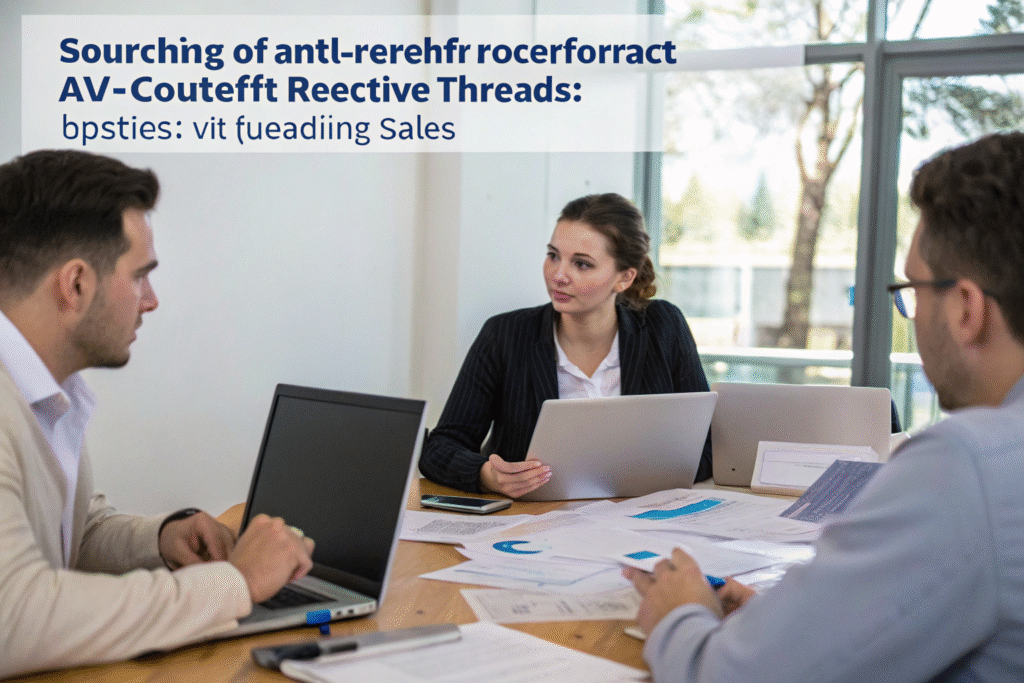
How do tariffs and shipping affect costs?
For American buyers, tariffs on textiles from China can be a concern. However, UV-reactive threads often fall into special HS codes that are less affected. Logistics hubs in Shanghai and Ningbo provide fast shipping options. Using freight forwarders can also optimize shipping costs and schedules.
Why is financial security important?
Bulk orders require advance payments, so working with suppliers backed by strong banking partnerships reduces risk. For instance, our collaboration with HSBC ensures stable cash flow and protects clients against delays caused by financing issues.
Conclusion
Anti-counterfeit UV-reactive security threads are a smart investment for brands that want to protect authenticity and build customer trust. From understanding their unique features to testing quality and evaluating suppliers, sourcing decisions must balance security, compliance, and logistics.
If you are considering sourcing UV-reactive security threads or custom anti-counterfeit fabrics, I invite you to partner with Shanghai Fumao. You can contact our Business Director Elaine at elaine@fumaoclothing.com to discuss your requirements and start building a secure supply chain for your brand.
